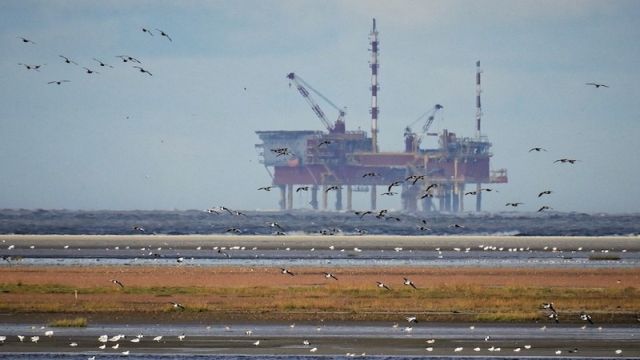
US among G7 ranked lowest to end fossil fuel subsidies
 New Delhi : The US is among G7 countries ranked lowest due to its continued support for fossil fuel exploration and production, as well as backtracking on previous pledges to end support to fossil fuels, new research has found.
New Delhi : The US is among G7 countries ranked lowest due to its continued support for fossil fuel exploration and production, as well as backtracking on previous pledges to end support to fossil fuels, new research has found.
It said Group of Seven (G7) governments continue to provide at least $100 billion each year to support the production and consumption of oil, gas and coal despite repeated pledges to end fossil fuel subsidies by 2025.
In a major study, published ahead of the G7 Summit in Canada, researchers from the Overseas Development Institute (ODI), Oil Change International (OCI), the International Institute for Sustainable Development (IISD), and the Natural Resources Defense Council (NRDC) have for the first time ranked each G7 country on their transparency, commitments and progress made on ending support for the production and use of oil, gas and coal.
The G7 2018 Summit will be held in Charlevoix, Quebec, from June 8 to 9.
France was the highest ranked country, due to its progress in phasing out support to fossil fuel production and power.
Canada, which holds the G7 presidency this year, scored highly on ending support to coal mining, fossil fuel-based power and fossil fuel use, but had the worst ranking on support for oil and gas production.
Britain scored lowest on transparency, with the government denying it provides any fossil fuel subsidies, under its own definition, despite making commitments to end subsidies.
Overall, the paper finds G7 governments are still dedicating vast public resources to finding, extracting and using fossil fuels, and are at serious risk of not delivering their commitment to phase-out subsidies by 2025.
“Despite repeated pledges to eliminate fossil fuel subsides G7 countries are continuing to subsidise oil, gas and coal, fuelling dangerous climate change with tax-payers’ money,” said lead author Shelagh Whitley, head of the Climate and Energy Programme at ODI.
“This scorecard addresses the current gap in accountability and, for the first time, tracks progress by each of the G7 countries in phasing out fossil fuel subsidies. While some progress has been made in recent years, overall it is a grim picture with not one country scoring highly.”
Report co-author Alex Doukas, Stop Funding Fossils Program Director at OCI, said: “Last December, the World Bank committed to ending its finance for oil and gas extraction. The G7 governments need to follow suit and rapidly phase out their public finance for oil, gas and coal projects around the world.”
To meet their 2025 deadline, researchers have called on the G7 to publish comprehensive fossil fuel subsidy peer-reviews no later than 2019 and establish country-level plans for phasing out fossil fuel subsidies, starting with subsidies that have negative social and environmental impacts.
—IANS

